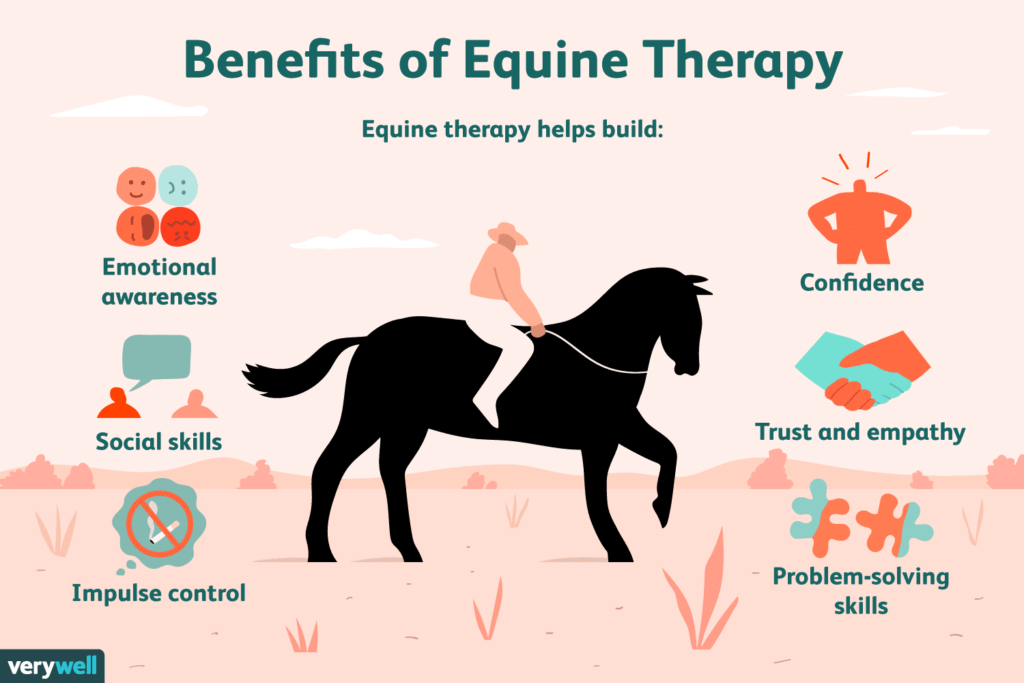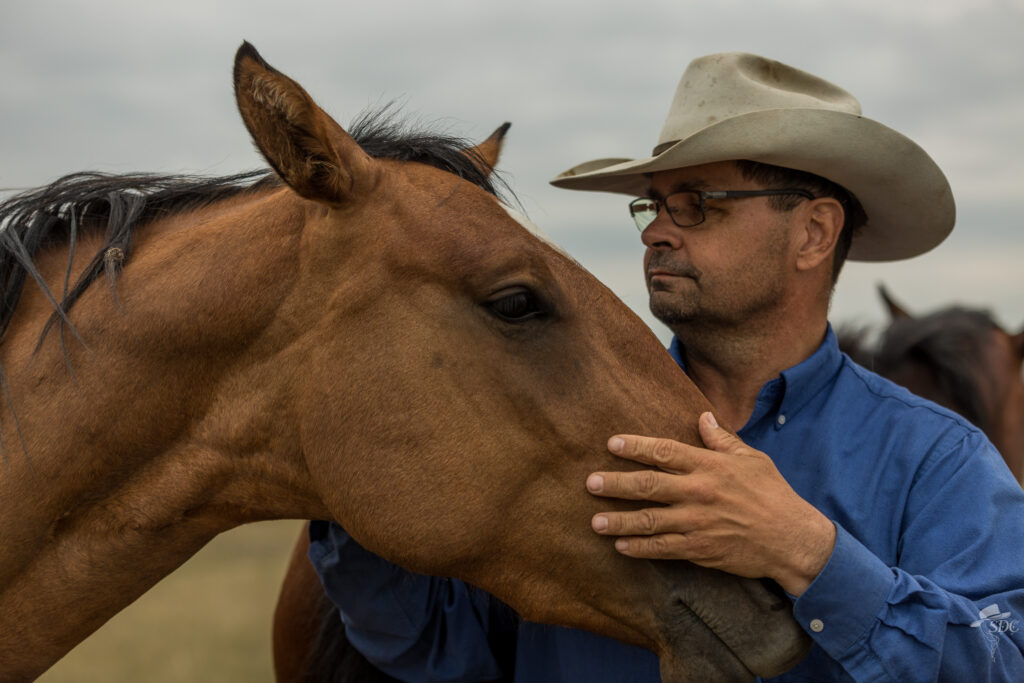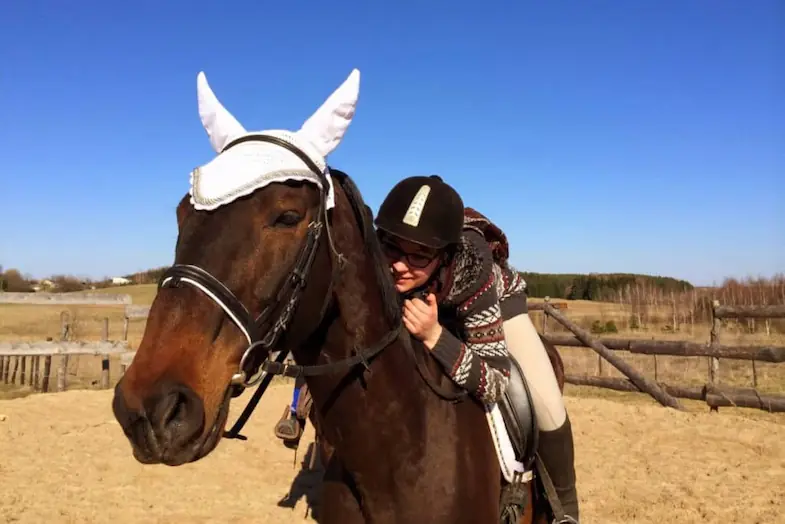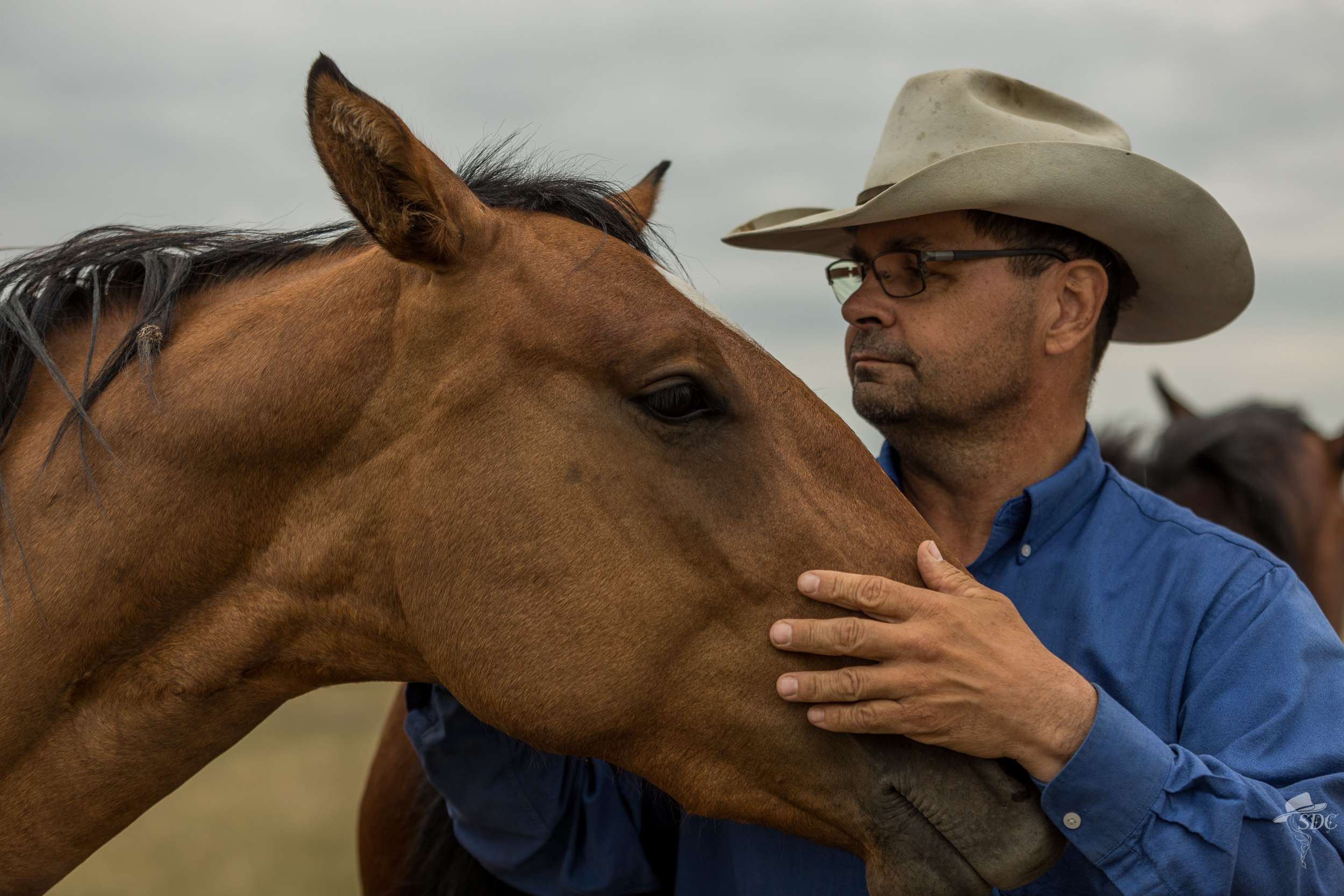is not only a recreational activity, but it also has a positive impact on mental health. In this article, you will learn about the various ways horseback riding can improve your mental well-being. From reducing stress and anxiety to boosting self-confidence and promoting mindfulness, horseback riding proves to be a therapeutic experience. Gain insight into how connecting with horses and being in nature can have a profound effect on your mental health. Get ready to discover the benefits of horseback riding and its potential to improve your overall well-being.
The Impact of Horseback Riding on Mental Health
Horseback riding has long been known for its physical benefits, but did you know that it also has a positive impact on mental health? Engaging in this activity not only allows you to connect with nature and animals but also provides numerous therapeutic effects that promote overall well-being. In this article, we will explore the various ways in which horseback riding can enhance your mental health and improve your quality of life.
Improved Mood and Happiness
One of the immediate benefits of horseback riding on mental health is the improvement in mood and happiness. Spending time outdoors and connecting with horses can have a profound positive effect on your emotional state. The release of endorphins during physical activity, combined with the joy of being around these majestic animals, can instantly lift your spirits.
Reduced Stress and Anxiety
Stress and anxiety have become prevalent issues in our fast-paced modern society. Horseback riding offers a natural and therapeutic escape from these daily pressures. Interacting with horses has been shown to reduce stress levels and induce a sense of calmness. The rhythmic motion of riding and the peacefulness of the surroundings create a serene environment that helps to alleviate anxiety.
Boosted Self-Confidence and Self-Esteem
Horseback riding can significantly boost self-confidence and self-esteem. The act of controlling and mastering such a powerful creature instills a sense of accomplishment and empowerment. As you develop your riding skills, you will gain confidence in your abilities and build a positive self-image. The trust and connection formed with the horse can also enhance your overall sense of self-worth.
The Therapeutic Effects of Horseback Riding
Apart from the immediate impacts on mood, stress, and confidence, horseback riding is increasingly recognized as a valuable form of therapy for various mental health conditions. Let’s explore some of the therapeutic effects it offers.
Equine-Assisted Therapy
Equine-assisted therapy (EAT) utilizes interactions with horses to address a range of mental health issues. This type of therapy is conducted under the guidance of trained professionals, such as therapists or counselors, who incorporate the presence of horses into the therapeutic process. EAT has been found to be effective in treating conditions such as depression, anxiety, post-traumatic stress disorder (PTSD), and substance abuse disorders.
Hippotherapy
Hippotherapy is a form of therapy that utilizes the natural movement of horses to improve motor skills, balance, and coordination. It has been particularly successful in aiding individuals with physical disabilities, cerebral palsy, and sensory integration disorders. The rhythmic movement of the horse stimulates and strengthens the muscles, while also providing sensory input that can help regulate and organize the nervous system.
Benefits for Individuals with Autism Spectrum Disorder
Horseback riding has shown significant benefits for individuals with Autism Spectrum Disorder (ASD). The non-judgmental and calming presence of horses can help individuals with ASD manage sensory sensitivities and develop social and communication skills. Equine-assisted activities provide a unique and effective way for these individuals to connect with others and improve their overall quality of life.

The Connection Between Horseback Riding and Mental Health
The bond between humans and animals has a profound impact on mental health. Horseback riding, in particular, allows for a deep connection with these magnificent creatures and the natural world. Let’s explore some of the ways in which this connection positively affects mental well-being.
Bonding with Animals and Nature
Spending time with horses offers a unique opportunity to form deep bonds with these gentle animals. The act of grooming, feeding, and riding a horse allows for a profound connection that cannot be easily replicated in other settings. This bond promotes feelings of love, trust, and companionship, which are essential for overall mental well-being. Additionally, being in the presence of nature and engaging in outdoor activities have been shown to reduce stress, improve mood, and increase feelings of happiness.
Mindfulness and Relaxation
Horseback riding provides a meditative and mindful experience. The concentration required to communicate with the horse and navigate the ride allows you to be fully present in the moment, free from everyday distractions and worries. This state of mindfulness promotes relaxation, reduces anxiety, and improves mental clarity. The rhythmic movement of the horse also has a calming effect on the body and mind, further enhancing the relaxation experience.
Sense of Freedom and Control
Horseback riding gives individuals a sense of freedom and control over their actions. As you guide the horse and navigate through the ride, you become aware of the power and responsibility that comes with controlling such a magnificent creature. This sense of control can empower individuals, especially those who feel limited or constrained in their everyday lives. The freedom of movement and the connection with the horse instills a sense of liberation and autonomy.
The Psychological and Emotional Impact of Horseback Riding
The benefits of horseback riding extend beyond the immediate effects on mood and relaxation. Engaging in this activity can lead to long-term psychological and emotional improvements. Let’s explore some of these impacts.
Improvement in Cognitive Abilities
Horseback riding requires both physical and mental coordination. The act of controlling the horse, following instructions, and navigating the course enhances cognitive abilities such as problem-solving, decision-making, and spatial awareness. Regular riding can also improve memory, attention span, and concentration.
Enhanced Emotional Regulation
Interacting with horses can help individuals develop and enhance their emotional regulation skills. The non-verbal and intuitive communication with the horse requires individuals to be aware of their own emotions and body language. This awareness fosters emotional intelligence and empowers individuals to regulate their emotions in a healthy and effective manner.
Development of Coping Skills
Horseback riding provides an opportunity to develop coping skills and resilience. Dealing with the unpredictable nature of horses and navigating challenging rides can teach individuals how to cope with stress, overcome obstacles, and adapt to changing situations. The resilience developed through horseback riding can be transferred to other areas of life, improving overall mental well-being.

Horseback Riding as a Form of Physical Activity
In addition to its psychological and emotional benefits, horseback riding is also an excellent form of physical activity. Engaging in regular riding can have positive effects on physical fitness, coordination, and overall well-being.
Improved Physical Fitness
Riding a horse requires a significant amount of physical effort. Engaging in this activity strengthens core muscles, improves posture, and enhances overall fitness levels. The repeated movements involved in riding, such as mounting, dismounting, and steering, provide a full-body workout that can improve cardiovascular health, endurance, and flexibility.
Increased Coordination and Balance
Maintaining balance and coordination is essential when riding a horse. The act of synchronizing your movements with the horse’s rhythm helps to improve balance and proprioception. As you develop these skills, your overall coordination and motor skills will improve, leading to increased body awareness and control.
Opportunity for Exercise and Weight Management
Horseback riding offers individuals the chance to engage in exercise while enjoying a fulfilling and enjoyable activity. Regular riding can help burn calories, promote weight loss, and maintain a healthy body weight. It provides a great alternative to traditional exercise routines, particularly for those who may find it difficult to engage in more conventional forms of physical activity.
Different Styles of Horseback Riding and Their Effects on Mental Health
There are various styles of horseback riding, each with its unique characteristics and effects on mental health. Let’s explore some of the most popular styles and their potential benefits.
English Riding
English riding is characterized by its focus on balance, posture, and precision. This style is commonly seen in disciplines such as dressage, show jumping, and eventing. Engaging in English riding requires a high level of concentration and discipline, which can improve mental focus, attention to detail, and discipline in other aspects of life.
Western Riding
Western riding, often associated with cowboy culture, focuses on comfort, stability, and relaxation. This style is commonly seen in disciplines such as Western pleasure, reining, and trail riding. Western riding offers a more laid-back and leisurely experience, promoting relaxation, stress relief, and a connection with nature.
Trail Riding
Trail riding involves exploring natural trails and terrains on horseback. It allows individuals to connect with nature, unwind, and experience the calming and soothing effects of the great outdoors. Trail riding offers a unique opportunity to escape the pressures of everyday life and enhance overall mental well-being.

The Role of Horseback Riding in Therapeutic Programs
Horseback riding plays a vital role in therapeutic programs designed to support individuals in their physical, emotional, and social well-being. Let’s explore some of the areas in which horseback riding is utilized as a valuable therapeutic tool.
Rehabilitation and Recovery Programs
Horseback riding is incorporated into rehabilitation and recovery programs for individuals recovering from physical injuries or illnesses. The rhythmic motion and physical engagement of riding can aid in physical rehabilitation, rebuild muscle strength, and improve overall mobility. The emotional and psychological benefits of horseback riding also contribute to the overall recovery process.
Support for Veterans and Military Personnel
Horseback riding programs are often utilized to provide therapeutic support for veterans and military personnel dealing with physical, emotional, and psychological challenges. Riding can assist in the healing process of post-traumatic stress disorder (PTSD), promote social connection and camaraderie, and offer a respite from the challenges faced by these individuals.
Social and Emotional Learning Programs
Horseback riding is increasingly integrated into social and emotional learning programs for children and adolescents. The interaction with horses fosters the development of empathy, compassion, and effective communication skills. These programs aim to enhance emotional intelligence, improve social integration, and provide a safe space for personal growth and development.
Equine-Facilitated Psychotherapy for Mental Health
Equine-facilitated psychotherapy (EFP) is a therapeutic approach that combines traditional therapy techniques with interactions with horses. EFP harnesses the healing power of the horse-human bond to address various mental health challenges. Let’s explore some of the ways in which EFP promotes mental well-being.
Psychological Healing through Horse Interactions
Interacting with horses in a therapeutic setting allows individuals to explore and work through psychological issues in a safe and non-judgmental environment. The horse serves as a mirror, reflecting the individual’s emotions, behavior, and patterns of communication. The unique bond formed with the horse can facilitate emotional release, self-reflection, and personal growth.
Addressing Trauma and PTSD
Horseback riding and EFP have shown promising results in addressing trauma and PTSD. The sensory experience of riding and interacting with horses can help individuals process traumatic memories, regulate emotions, and develop coping mechanisms. The horse’s instinctual and non-verbal nature creates a safe space for individuals to explore their trauma and work towards healing.
Improving Communication and Relationship Skills
Working with horses requires effective communication, trust, and mutual respect. Engaging in EFP can help individuals develop and improve their communication and relationship skills. The horse’s immediate feedback and responsiveness allow individuals to become more aware of their non-verbal cues and communication styles. These skills can then be transferred to interpersonal relationships, leading to improved social interactions and healthier relationships.

The Impact of Horseback Riding on Specific Mental Health Conditions
Horseback riding has been found to have positive effects on various mental health conditions. Let’s explore how it can benefit individuals dealing with specific challenges.
Depression and Anxiety Disorders
Horseback riding has shown significant benefits for individuals experiencing depression and anxiety disorders. The combination of physical activity, the soothing presence of horses, and the connection with nature can alleviate depressive symptoms and reduce anxiety levels. Regular riding can provide a consistent, joyful experience that supports emotional well-being.
Attention Deficit Hyperactivity Disorder
Horseback riding can be particularly beneficial for individuals with Attention Deficit Hyperactivity Disorder (ADHD). The structured environment, the need for focus and concentration, and the kinesthetic experience of riding can help individuals with ADHD improve their attention span, impulse control, and overall behavior management.
Postpartum Depression and Pregnancy-Related Mood Disorders
Horseback riding offers a therapeutic outlet for individuals experiencing postpartum depression and other pregnancy-related mood disorders. The physical activity, sensory stimulation, and emotional connection with horses can help alleviate symptoms of depression, boost mood, and provide a sense of support and solace during this vulnerable time.
The Influence of Horseback Riding on Overall Well-Being
Engaging in horseback riding has a significant impact on overall well-being, promoting a sense of purpose, social connection, and an improved quality of life. Let’s explore some of the ways in which horseback riding enhances our overall sense of well-being.
Sense of Purpose and Meaning
Horseback riding provides individuals with a sense of purpose and meaning. Caring for and riding horses requires commitment, responsibility, and dedication. The daily routines, the bond with the horse, and the progress made in riding skills contribute to a sense of fulfillment and purpose in life.
Social Connection and Support
Horseback riding is often enjoyed as a group or community activity. Riding clubs, lessons, and events provide opportunities for social connection and support. Engaging in this shared passion allows individuals to form friendships, create a sense of belonging, and build a support system. The horse community offers a unique sense of camaraderie and understanding among fellow riders.
Improvement in Quality of Life
The combination of physical, psychological, and emotional benefits from horseback riding ultimately leads to an improved quality of life. The joy, fulfillment, and mental well-being experienced through engaging in this activity contribute to a happier and more fulfilling life overall.

Equine-Assisted Activities for Mental Health Improvement
In addition to therapeutic riding and EFP, there are various equine-assisted activities that can support mental health improvement. Let’s explore some of these activities and their benefits.
Therapeutic Horseback Riding
Therapeutic horseback riding involves structured riding sessions that focus on achieving specific therapeutic goals. Under the guidance of trained professionals, individuals engage in activities that address physical, emotional, and cognitive needs. Therapeutic riding can help improve balance, coordination, self-confidence, and overall well-being.
Ground-Based Activities with Horses
Ground-based activities with horses offer individuals the opportunity to engage with horses outside of riding. These activities may include grooming, leading, and interacting with horses on the ground. The non-riding interactions allow individuals to develop trust, establish boundaries, and practice empathy and communication skills.
Equine-Facilitated Mental Health Workshops
Equine-facilitated mental health workshops provide individuals with experiential learning opportunities that involve interaction with horses. These workshops focus on specific mental health themes, such as stress reduction, anger management, or emotional regulation. The unique partnership between humans and horses allows for deep personal insights and growth.
Promoting Mental Health Awareness through Horseback Riding
Horseback riding can also be utilized as a platform to promote mental health awareness and education. Let’s explore some ways in which this can be achieved.
Educational Programs and Workshops
Organizing educational programs and workshops that highlight the mental health benefits of horseback riding can help raise awareness and provide valuable information to the community. These programs can cover topics such as the therapeutic effects of horseback riding, the impact on specific mental health conditions, and the importance of mental well-being in general.
Community Initiatives and Events
Community initiatives and events centered around horseback riding provide an opportunity to bring people together and promote mental well-being. Organizing charity rides, horse shows, or awareness campaigns can help create a sense of community, raise funds for mental health organizations, and spread the message of the positive impact of horseback riding on mental health.
Advocacy for Equine-Assisted Therapy Funding
Advocating for equine-assisted therapy funding is crucial in ensuring that mental health services involving horseback riding are accessible and available to those who can benefit from them. By raising awareness about the effectiveness of horse-assisted therapies, individuals, organizations, and communities can support the availability and funding of these valuable mental health resources.
Overcoming Challenges and Fears through Horseback Riding
Engaging in horseback riding often involves overcoming personal challenges and fears. The process of facing limitations and building resilience has a transformative effect on mental well-being.
Building Resilience and Facing Limitations
Horseback riding requires individuals to push past their comfort zones and face their limitations. Learning to ride, improving skills, and navigating challenging courses all involve a willingness to adapt, grow, and persevere. The process of building resilience and facing limitations on horseback can instill a sense of confidence, personal growth, and the ability to overcome obstacles in other areas of life.
Empowerment and Empathy
Working with horses fosters a sense of empowerment and empathy. The horse’s sensitivity and responsiveness to human emotions and energy teach individuals to be aware of their own emotions and the impact they have on others. This empathy can extend beyond the horse-human relationship and enhance interpersonal connections and emotional intelligence.
Mind-Body Connection
Engaging in horseback riding strengthens the mind-body connection. The intricate communication between horse and rider requires individuals to be attuned to their own physical and emotional states. Learning to listen to the horse and respond appropriately fosters a deeper understanding of oneself and the relationship between mental and physical well-being.
Conclusion
Horseback riding has a profound impact on mental health, offering a wide range of benefits that promote overall well-being. From improved mood and reduced stress to enhanced self-confidence and cognitive abilities, the therapeutic effects of horseback riding are evident. The connection formed with these majestic animals, the opportunity to engage with nature, and the sense of purpose and control gained from riding all contribute to mental well-being. Whether through therapeutic programs, equine-assisted activities, or simply enjoying time spent riding, horseback riding has the potential to significantly improve mental health and enrich lives. So saddle up, embrace the transformative power of horseback riding, and embark on a journey towards better mental well-being.
